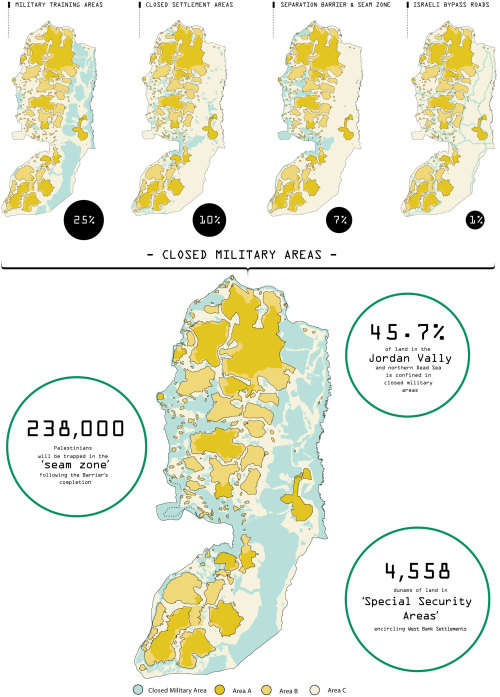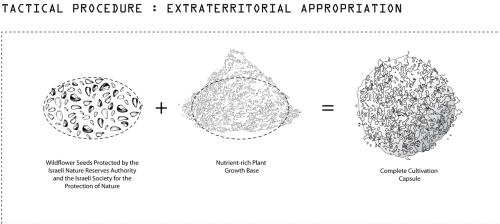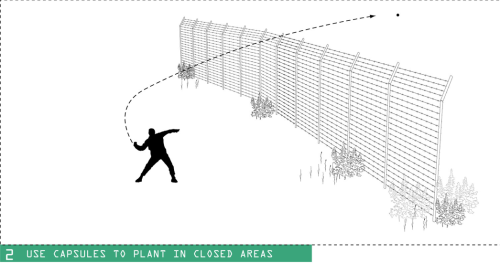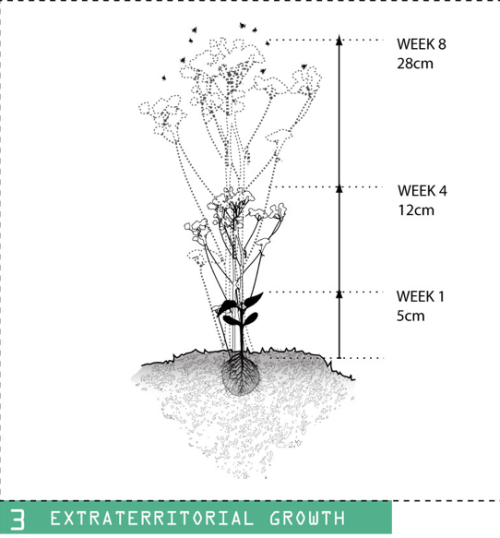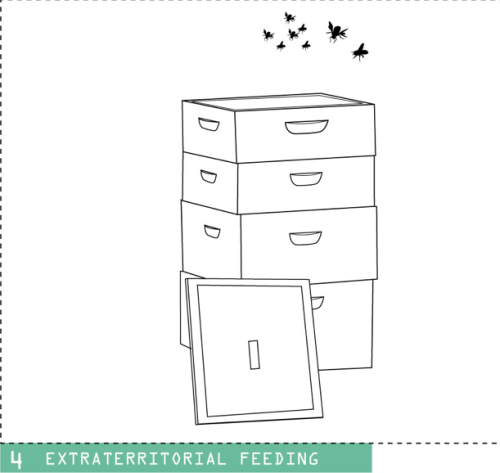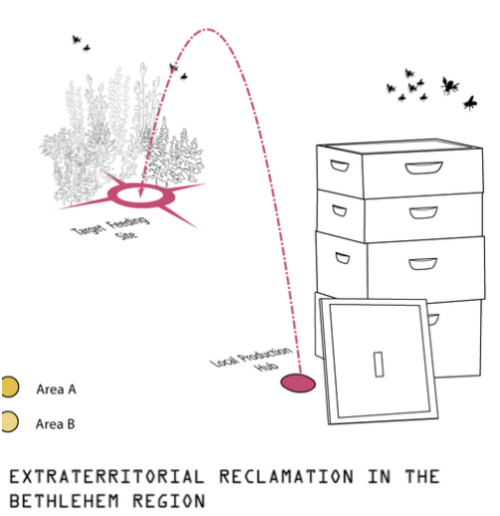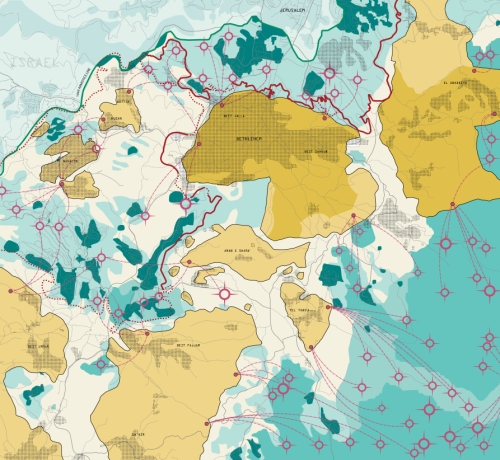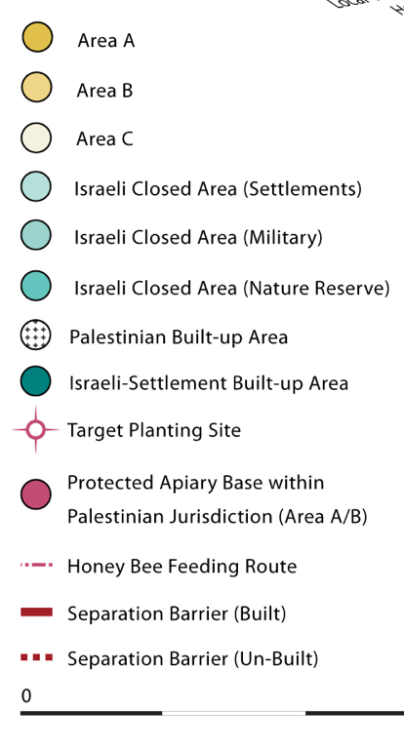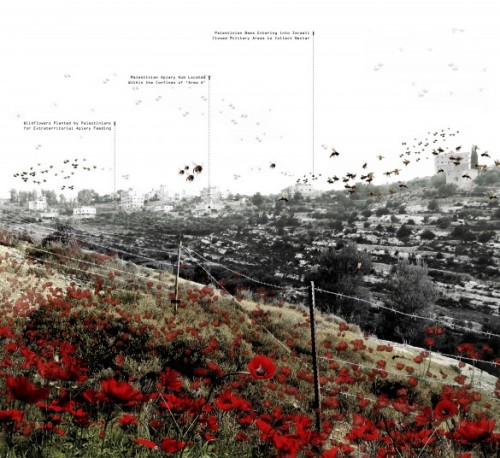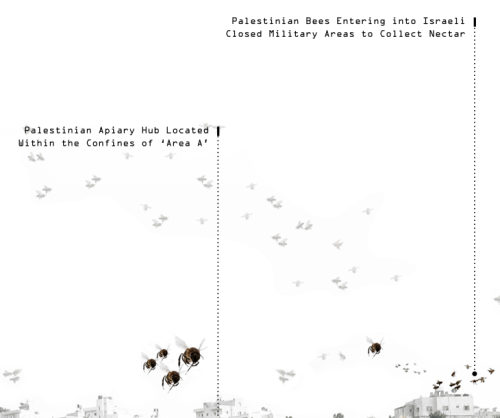Suzanne Harris-Brandts did a residency with DAAR (Decolonizing Architecture Art Residency), an
Suzanne Harris-Brandts did a residency with DAAR (Decolonizing Architecture Art Residency), an art and architecture collective and a residency programme based in Beit Sahour, Palestine. DAAR’s work combines discourse, spatial intervention, education, collective learning, public meetings and legal challenges. DAAR’s practice is centred on one of the most difficult dilemmas of political practice: how to act both propositionally and critically within an environment in which the political force field is so dramatically distorted. It proposes the subversion, reuse, profanation and recycling of the existing infrastructure of a colonial occupation.An excerpt from her thesis and some of her work can be seen from this article : Considering the Political Agency of Residual Landscapes in the West Bank. Her closing arguments for alternative Design Tactics:Extraterritorial Appropriation *see full article for full development of research and ideaIn the Occupied Palestinian Territories, Israeli ‘closed military areas’ confine vast amounts of prime agricultural and grazing land -over 40% of the total West Bank- away from Palestinian use. The tactical design of Extraterritorial Appropriation therefore, seeks to introduce another layer of meaning and function to these highly restricted closed areas through the exploitation of their residual and neglected spaces.Extraterritorially planted wildflowers turn large swaths of previously unusable lands into honey bee feeding grounds, which in turn re-activate Palestinian apiaries and contribute to the stimulation of the local Palestinian economy. By using ‘cultivation capsules’ as a proxy form of agricultural planting and honey bees as proxy agents for their cultivation, trespassing restrictions are obviated. Such planting resists military destruction by enlisting Israel’s own environmental protection laws (issued by the ‘Israeli Nature Reserves Authority’ and the ‘Israeli Society for the Protection of Nature’) which prohibit the uprooting of native protected plant species.The proposed process of apiary re-invigoration moves beyond its role, contributing to economic stimulation and social cohesion to re-enforce the biodiversity of this scarred military landscape and symbolically reinstate a Palestinian claim to lands which have been unilaterally-seized as a result of the occupation. The simultaneous blooming of thousands of wildflowers in the West Bank’s derelict closed military zones is further intended to produce a rapidly legible visual register, rendering visible the spatial contours of Israel’s occupation and broadcasting the underlying confining conditions of Palestinian land access and use hidden within.*It’s very ambitious of me to try to post something like this on tumblr when it’s best left to the professional bloggers, but it’s inspiring and this is where I put my inspiration.↬ electronicintifada -- source link
#suzanne harris-brandts#palestine#decolonize#apiary
